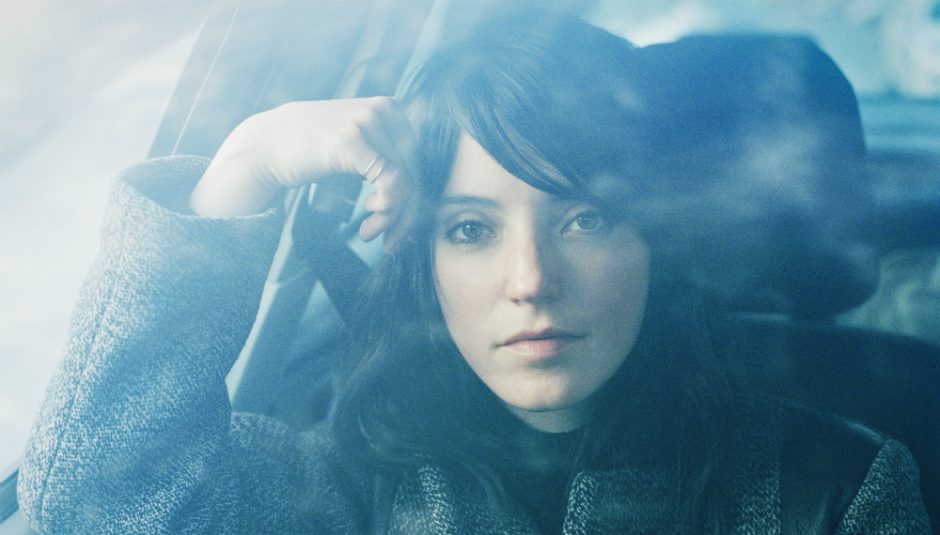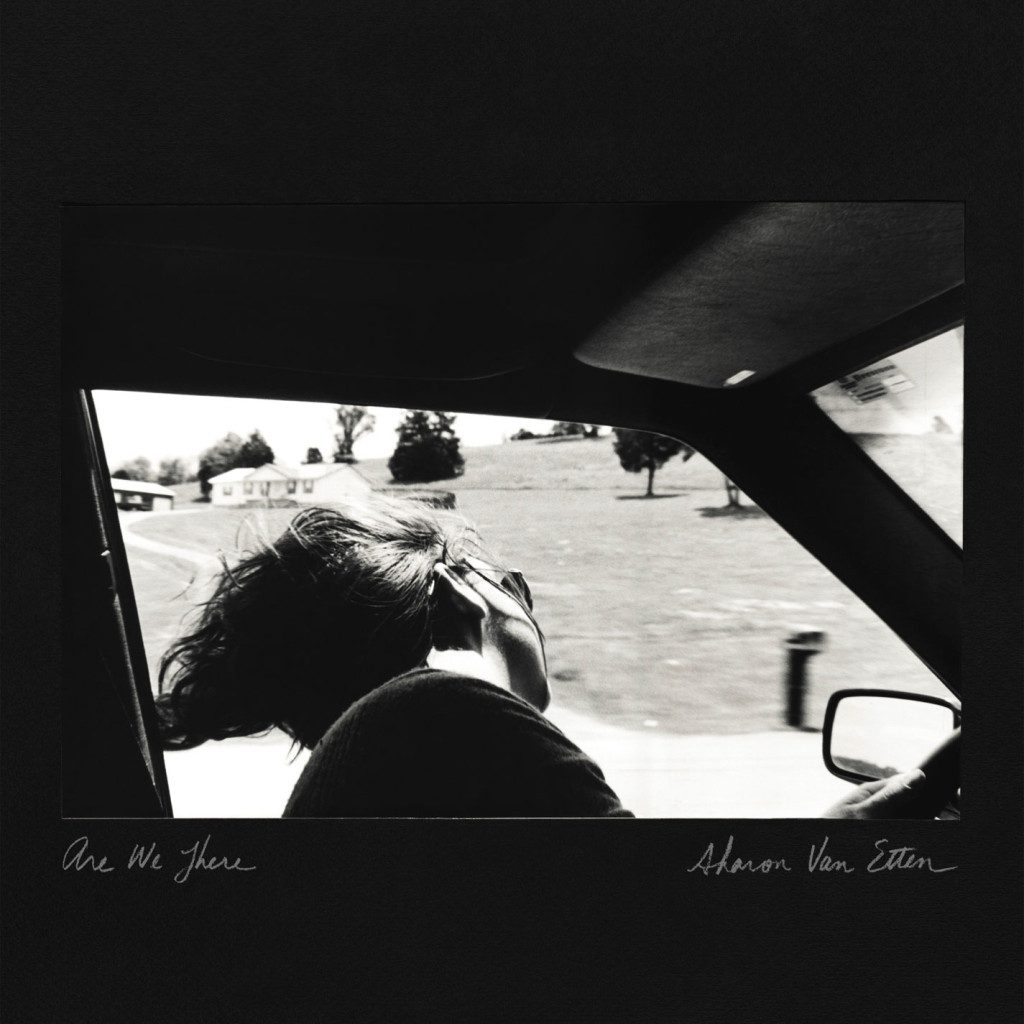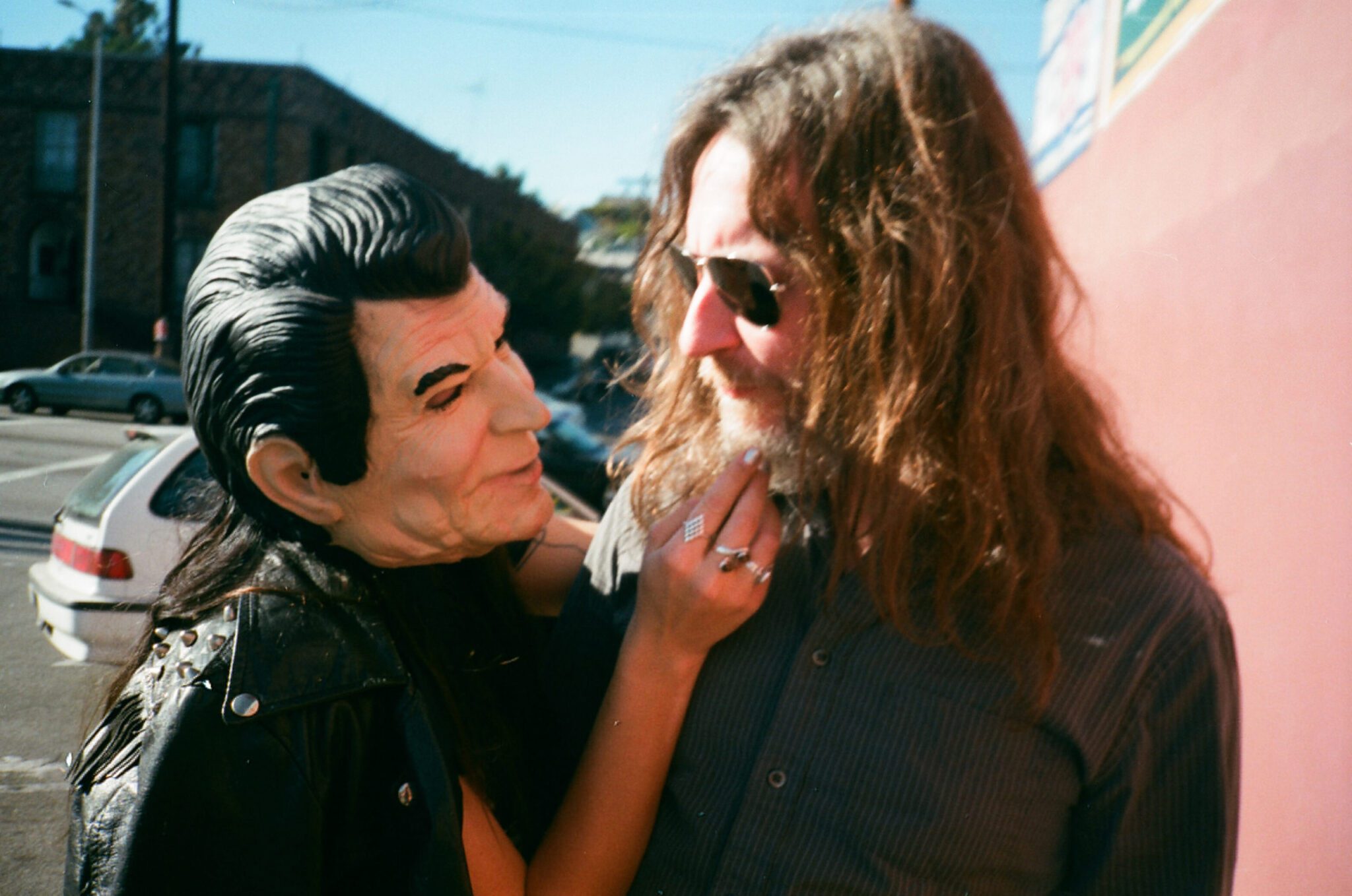ALBUM REVIEW: Sharon Van Etten “Are We There”

“I can’t wait ’til we’re afraid of nothing,” sings Sharon Van Etten, in her silvery and harmony-braided way, on the opening track of her new album Are We There. “I can’t wait ’til we hide from nothing.” The song– “Afraid Of Nothing”– has a sweeping clean-slate quality to it: it’s a fresh start, a New Year’s resolution. Maybe it’s the lyrics, or maybe it’s the flourishing, diva-esque piano chords, but there’s weight to this beginning. With its very first chords, Are We There establishes a low center of gravity. These songs are sturdy, they’re in it for the long haul.
That’s the power of skillfully deployed vocal acrobatics and complete mastery of your subject matter. Big, theatrical romantic breakdown has long been at the core of Van Etten’s musical landscape, and her sharpest tool is a voice that can be bent but never broken. Her albums–there are four of them now, beginning with 2009’s Because I Was In Love–are stories of how she uses the latter to navigate the former, a journey that the title of this latest record suggests is still ongoing.
And on Are We There that path is as satisfying and surprising as ever. Van Etten’s major themes haven’t changed much, but her aesthetic has expanded in every direction. On some tracks, like this album’s opener, she traverses an Adele-esque range and corresponding sense of drama–her sadness so straightforward it’s almost cloying–but elsewhere, her voice is stretched to its strange outer limits as pain gives way to blood-letting.
Just look at “Your Love Is Killing Me,” only three songs into this thing. It is possibly my favorite cut on the album, and it’s a great example of the far end of Van Etten’s sweet-spooky spectrum. The song begins with a vaguely militant beat that reappears in the chorus as triplets of crisply pissed off snare rapping. Then there’s her voice, so stridulent at its apex that she barely sounds human. “Break my legs so I won’t walk to you. Cut my tongue so I can’t talk to you,” she sings. This goes on: “Burn my skin so I can’t feel you. Stab my eyes so I can’t see… you like it when I let you walk over me.” Behind the exorcism, behind the declarations of brokenness, there’s powerful orchestration–swirling guitar lines, cycling piano chords–backing up these words.
Van Etten’s speaking voice is downright cute, and sometimes, listening to her talk, it’s easy to imagine that she sings love songs of the quietly forlorn, tea-drinking-while-moodily-gazing-out-windows-onto-overcast-skies variety. And though there’s plenty of sadness on Are We There, it never sounds neutered: even the songs that never rise above a whisper come with the reminder that they know how to snarl.
Are We There ends on another highlight: the deceptively simple, deceptively sweet “Every Time The Sun Comes Up.” Van Etten arranges the lyrics into a sing-song-ish pattern, like a riddle, and the mood straddles optimism and gloom. There are flashes of self-contained thoughts, like the coyly meta “People say I’m a one hit wonder, but what happens when I have two?” Then the song settles into a kind of moody anti-love song, with “I washed your dishes then I shit in your bathroom.” Listening to the song feels like being inside Van Etten’s head, trying to follow a string of thoughts and fluctuations that aren’t explained or organized into a performance. It’s the most interior song on the album, and in a way, it’s also the most obscured. The journey from the album’s opening track “Afraid Of Nothing,” which is a performance not only in its theatricality but also in the sense that Van Etten has a specific audience–the complicated, ever-present love interest that has ravaged and fascinated her music since she began playing publicly.
But by this album’s end, we feel that Van Etten isn’t on stage anymore, but is right beside us, spilling her guts in a less organized, and perhaps more mundane way. That doesn’t make her guts uninteresting–the evocative snippets that we get on “Every Time The Sun Comes Up” are some of the most intriguing on an album full of compelling lyrical lines. Mundanity, in Sharon Van Etten’s case, is anything but.
Are We There dropped on May 27th via Jagjaguwar. Go here to buy it via iTunes. Watch the great and profoundly depressing video for “Every Time The Sun Comes Up” below:




